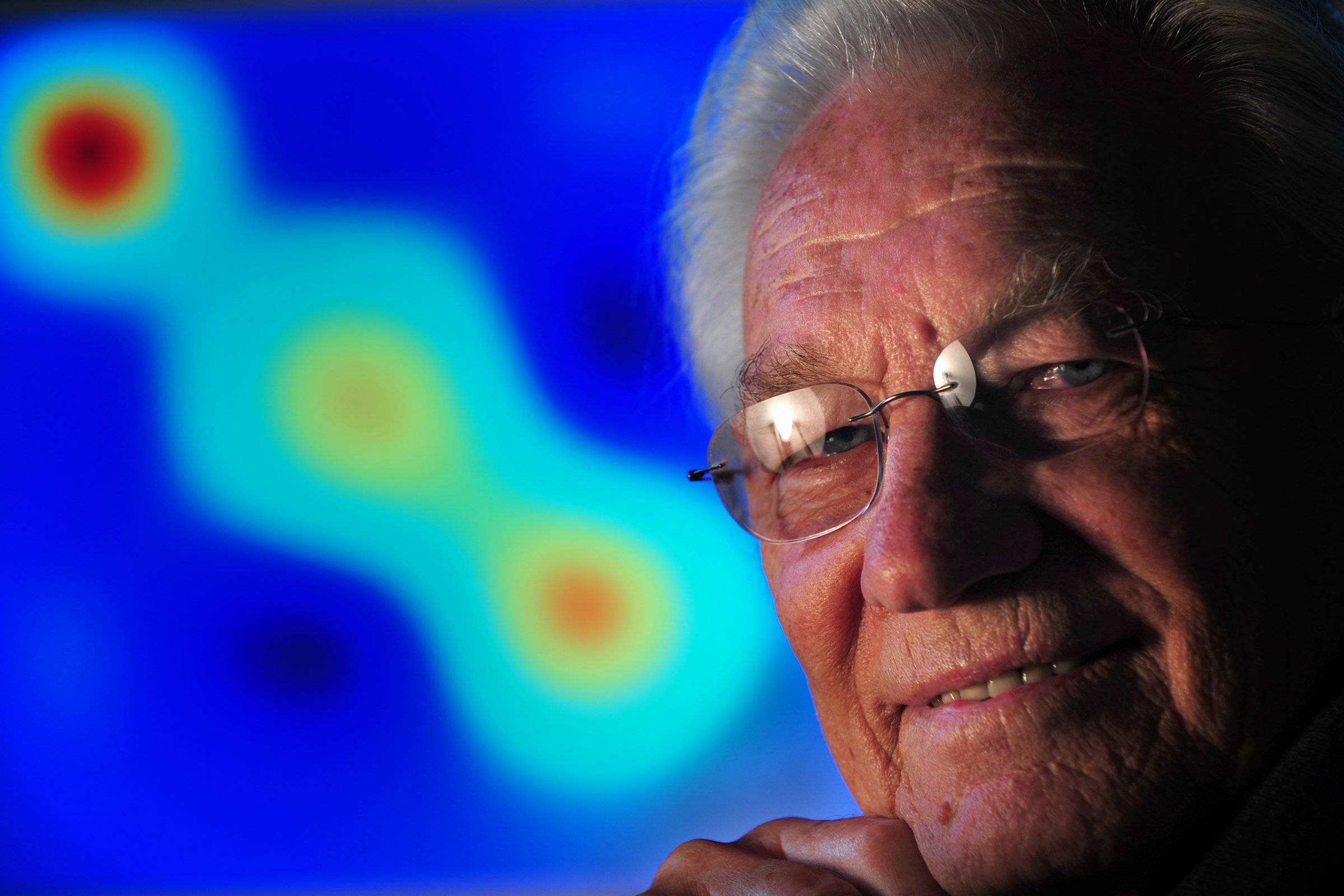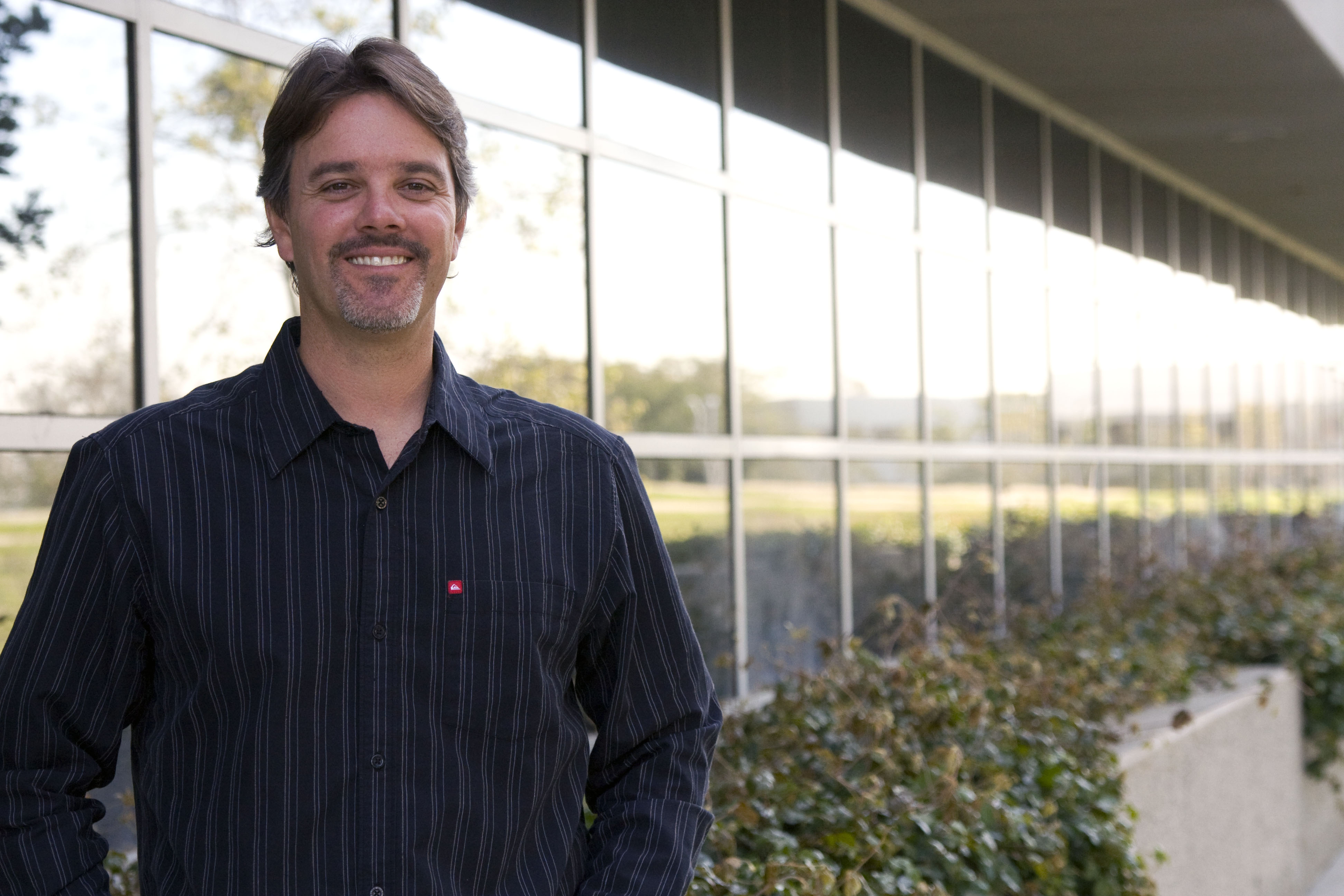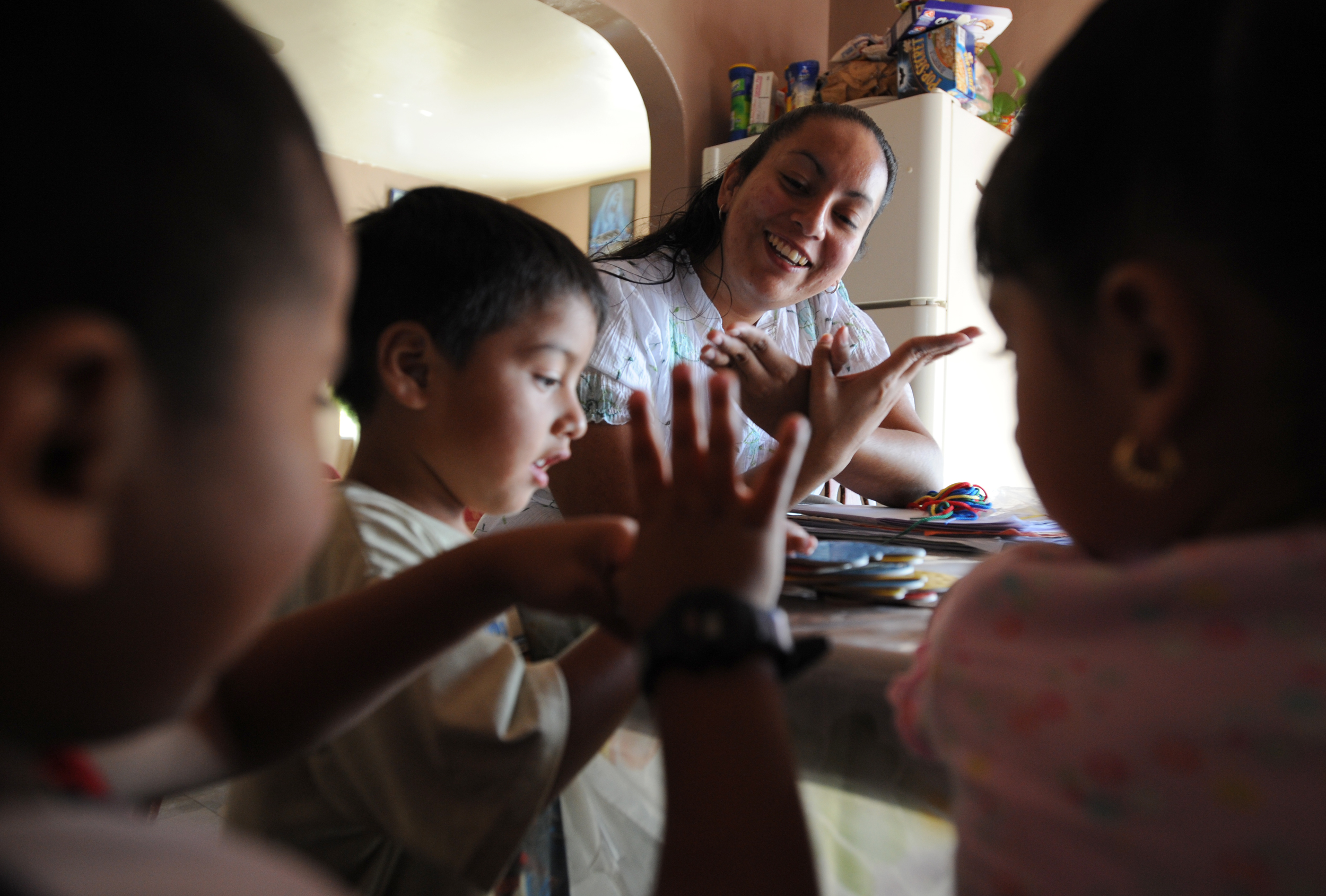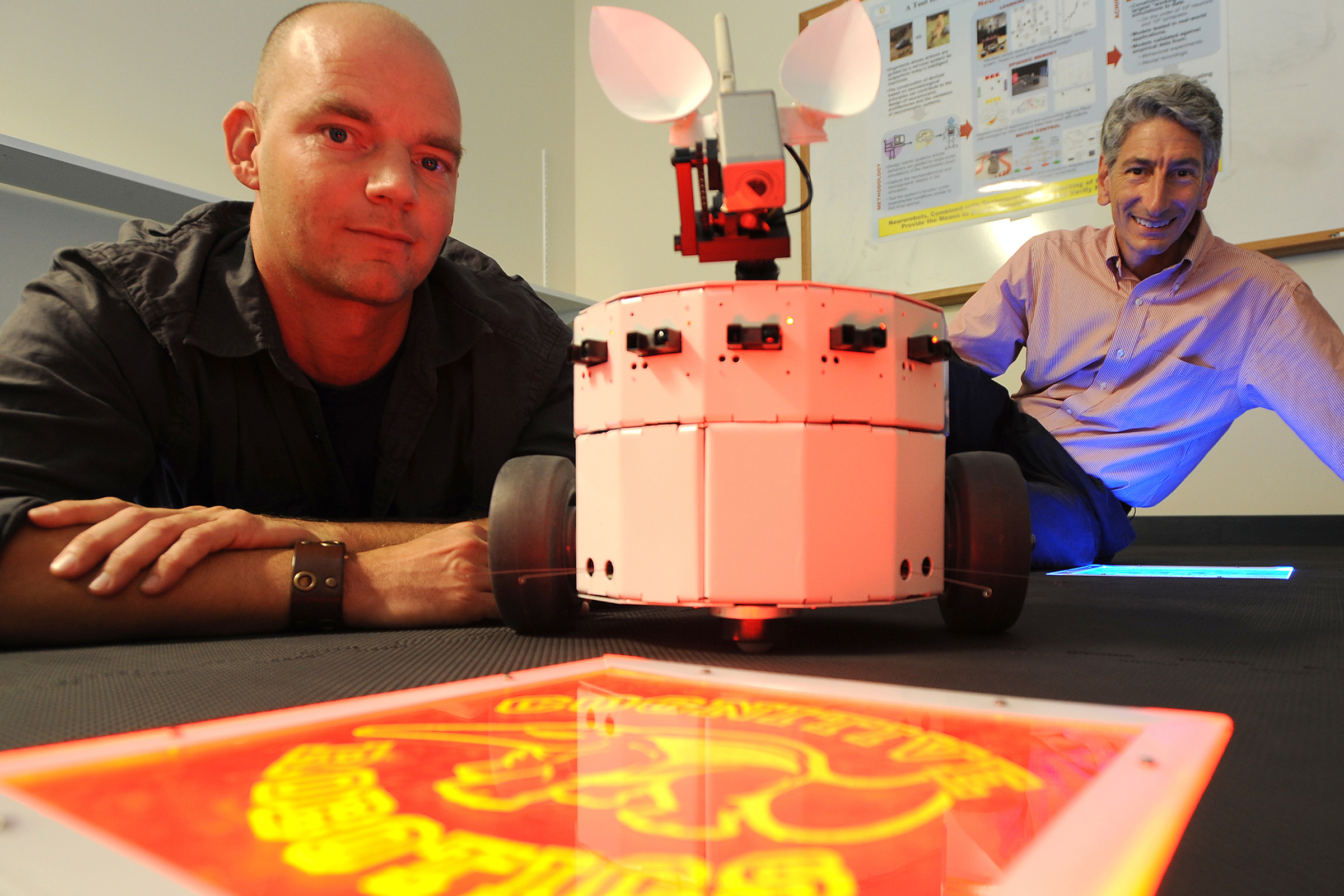Findings could lead to advancements in understanding human behavior and further developments in neurorobotics
UCI social sciences research professor A. Kimball Romney creates new mathematical model to explain how the human eye sees color
Findings will help researchers learn if humans are hardwired to pick up language more quickly than other skills.
Chicano/Latino studies and psychology undergrad Pamela Ruiz studies ways to end gang strangleholds in Honduras and the U.S.
Findings from cognitive neuroscientists Hickok and Saberi will be critical in guiding clinical research on disorders including autism, schizophrenia and stroke-induced aphasia
Findings will aid in development of new treatments for victims of stroke and individuals with autism and schizophrenia
Robot designed by cognitive scientist Jeff Krichmar helps researchers learn how brain adapts to environment
Using a new mathematical framework, researchers suggest they may be able to account for the large number of unknowns that current probability theory does not address; applications in political science, economics, psychology
Study headed by cognitive scientist Mike D’Zmura focused on creating a thought-based communication system; may lead to ability to “speak” without uttering a word; implications extend from healthcare to law enforcement


















connect with us